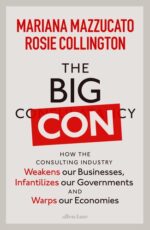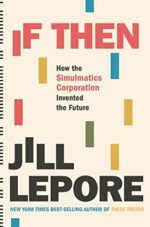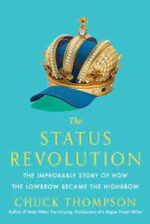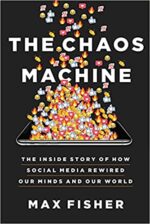The ‘Big Con’
There is an entrenched relationship between the consulting industry and the way business and government are managed today which must change. Mariana Mazzucato and Rosie Collington show that our economies’ reliance on companies such as McKinsey, Boston Consulting Group, Bain & Company, PwC, Deloitte, KPMG and EY stunts innovation, obfuscates corporate and political accountability and impedes our collective mission of halting climate breakdown. Mariana Francesca Mazzucato is an economist with dual Italian–American citizenship. She is a professor in the Economics of Innovation and Public Value at University College London and founding director of the UCL Institute for Innovation and Public Purpose. Rosie Collington is a PhD candidate at the UCL Institute for Innovation and Public Purpose, where she researches the political economy of outsourcing. The ‘Big Con’ describes the confidence trick the consulting industry performs in contracts with hollowed-out and risk-averse governments and shareholder value-maximising firms. It grew from the 1980s and 1990s in the wake of reforms by both the neoliberal right and Third Way progressives, and it thrives on the ills of modern capitalism, from financialization and privatisation to the climate crisis. It is possible because of the unique power that big consultancies wield through extensive contracts and networks – as advisors, legitimators and outsourcers – and the illusion that they are objective sources of expertise and capacity. To make matters worse, our best and brightest graduates are often redirected away from public service into consulting. In all these ways, the Big Con weakens our businesses, infantilises our governments and warps our economies. Mazzucato and Collington expertly debunk the myth that consultancies always add value to the economy. With a wealth of original research, they argue brilliantly for investment and collective intelligence within all organisations and communities, and for a new system in which public and private sectors […]









